Search Results
Showing results 241 to 260 of 445
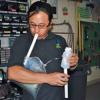
Bag Pipe
Source Institutions
In this activity, learners explore sound by constructing their very own bagpipe instrument.
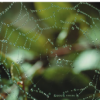
Stick to It: Adhesion II
Source Institutions
Water sticks to all kinds of things in nature — flowers, leaves, spider webs - and doesn't stick to others, such as a duck's back.

Exploring Forces: Gravity
Source Institutions
In this nanoscience activity, learners discover that it's easy to pour water out of a regular-sized cup, but not out of a miniature cup.
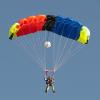
Design a Parachute
Source Institutions
After a discussion about what a parachute is and how it works, learners create parachutes using different materials that they think will work best.
Parachute Design
Source Institutions
In this activity, learners design and build their own parachute using household materials with the goal of landing their passenger safely on a target.
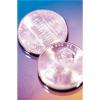
What's in a Penny?
Source Institutions
In this chemistry activity, learners use chemical reactions to observe the composition of an alloy.
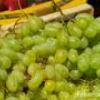
Push Me a Grape
Source Institutions
In this physics activity, learners experiment with the attractive and repulsive power of magnets.
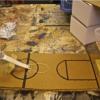
Finger Basketball
Source Institutions
In this activity, learners build mini-basketball courts using cardboard and measuring spoons. Use this activity to introduce learners to catapults, forces, and levers.
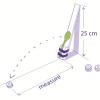
Volcanic Material Catapult Investigation
Source Institutions
This activity (located on page 3 of the PDF under GPS: Lava Flow Activity) is a full inquiry investigation into the relationship between an object’s mass and the distance it is thrown by a catapult.
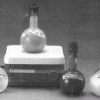
Pearlescent Pigments
Source Institutions
This is written as a display, but can easily be adapted to a hands-on activity. Learners observe and shake containers of shiny liquids.
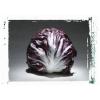
Cabbage Juice Indicator
Source Institutions
In this chemistry activity, learners make indicator solution from red cabbage. Then, learners test everyday foods and household substances using the cabbage juice indicator.
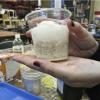
Hot & Cold
Source Institutions
In this activity, learners experiment with hydrogen peroxide, vinegar, yeast, and baking soda to produce hot and cold reactions. Use this activity to demonstrate exothermic and endothermic reactions.
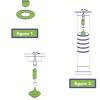
Roller Coaster Design
Source Institutions
This activity (on page 3 of the PDF under GPS: Roller Coaster Design Activity) is a full inquiry investigation into g-force and acceleration.
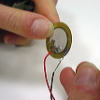
Electric Cup Guitar
Source Institutions
Make a one-string "guitar" by stringing a cup with some fishing line. You amplify the plucking of the string by placing a piezo contact microphone and mini battery powered amplifier inside the cup.

Zoo Calendar
Source Institutions
Use the Zoo Calendar (page 1 of PDF) to involve learners in interdisciplinary, whole language, and writing activities about ecological concepts.
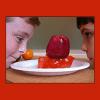
Space Jell-O
Source Institutions
Albert Einstein proved that space bends around anything that has mass. This activity uses Jell-O's ability to bend around objects as a model for space bending around planets and stars.
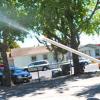
PVC Water Squirter
Source Institutions
In this activity, learners build a water squirter using a PVC pipe, dowel, and foam. This activity is great for the summer time and introduces learners to forces and water pressure.
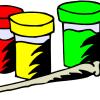
Salt Painting
Source Institutions
In this art meets chemistry activity, early learners discover the almost magical absorbent properties of salt while creating ethereal watercolor paintings.
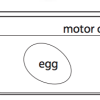
There’s Oil in My Eggs
Source Institutions
In this activity, learners investigate the impact of oil pollution on the environment and wildlife. Learners use hard-boiled eggs and feathers to understand the damage that oil spills can cause.
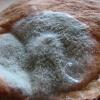
Moldy Jell-O
Source Institutions
In this laboratory activity, learners design an experiment to evaluate how environmental factors influence the growth of molds.
